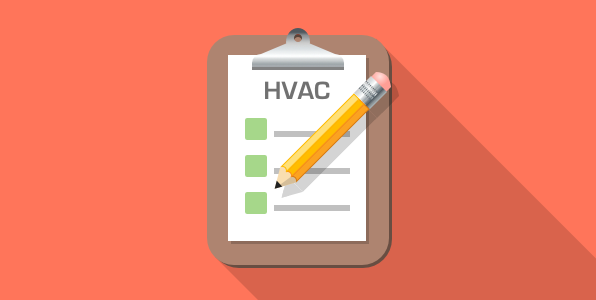8 Common HVAC Problems
Understanding the Problem
Your HVAC system is an important part of keeping your home happy and comfortable. But just like any system, it is not without its common issues. There are many moving parts to your heating, ventilation, and air conditioning system, and as the core climate controller in the home, it’s important to keep it in good working order with diligent maintenance and care. You can handle some issues yourself with some studying and a bit of elbow grease, while others require the touch of a trained technician.
Here we’ll take a look at the most commonly reported HVAC problems. Do any of these sound familiar?
1. Thermostat Issues:
Your thermostat tells your HVAC system when and how to heat or cool your home. Ensure your thermostat is on the right setting before checking for further issues within your system. Fixing a broken thermostat may be all you need in order to get your system up and running again.
2. Blown Fuses:
The fuses in your HVAC system protect the motor from overheating. If your system is not working, check your breaker box first. If a breaker has flipped there is a chance that there is a larger problem within your system.
3. Worn Contactors:
Worn contactors can cause system outages. There are three standard contactors in an HVAC unit: the condenser fan motor, the blower motor, and the compressor. If contactors are worn out, they cannot engage an electrical connection, making your HVAC system unable to turn on when needed for cooling or heating. If the contactors themselves are not worn, then faulty wiring may be to blame.
4. Dirty Filters:
Dirty filters are one of the most common problems, and they are also one of easiest issues to fix. Filters get clogged over time from dust particles and debris. If your filters are beginning to become dirty and dusty, it’s time to replace them. Dirty filters can cause air flow to be inconsistent throughout the home, and can also cause unnecessary pressure buildup in your HVAC system.
5. Refrigerant Leaks:
Refrigerant leaks can cause your air conditioner to be chronically low on refrigerant. These leaks prevent your system from being able to blow cold air. Refrigerant is also toxic to the environment, which makes it an important issue to remedy. If you suspect a refrigerant leak, call a technician immediately to locate the leak and fix or replace the damaged part.
6. Drainage Issues:
Drainage lines can be a common problem in HVAC systems. If drain lines are clogged with dirt, debris, or algae, then the drain pan can overflow and cause resultant water damage. A faulty drainage system will also compromise the effectiveness of your system and can rapidly increase your electricity bill. Check the condensate drain to make sure that it is draining properly. HVAC systems that are not level may also cause drainage issues.
7. Sensor Issues:
Thermostat sensor issues are commonly to blame, keeping your HVAC system from properly assessing the temperature of your home. If the sensor is located in a room that is far away from the heart of the home, it may falsely read your home’s temperature as lower or higher than the remainder of the house. Ensure that if your HVAC system has a sensor, it is located centrally or within the largest room of the house.
8. Coils:
The condenser coil is an important part of the entire system. Located outside, they are exposed to outdoor elements, so they are particularly susceptible to dirt and grime. The evaporator coil is also an important piece of the system to clean, and should be addressed every few years to maintain cleanliness.
HVAC systems are a key piece of keeping your home comfortable. Proper maintenance can help prevent many of the most common HVAC issues, whereas others can often be quickly identified and addressed by you or a professional.


